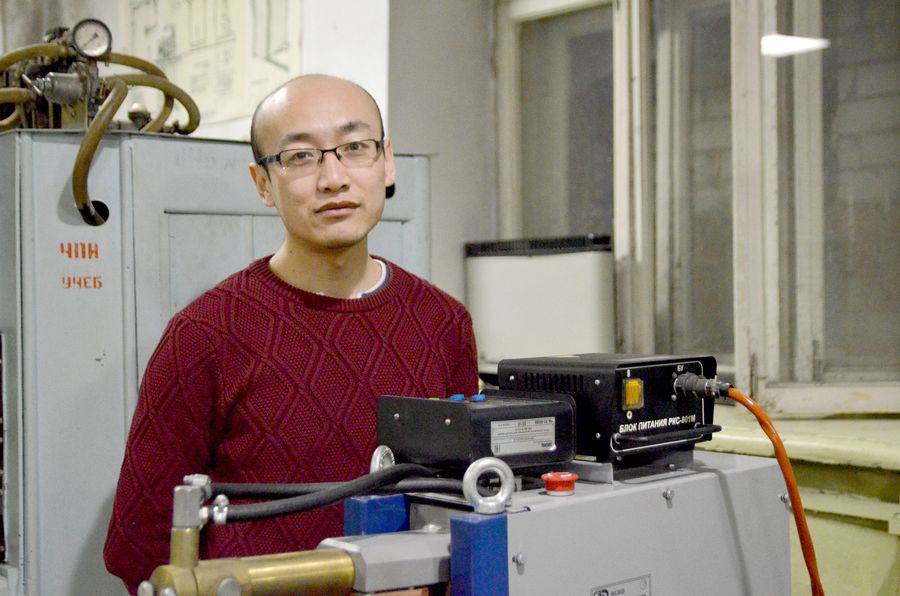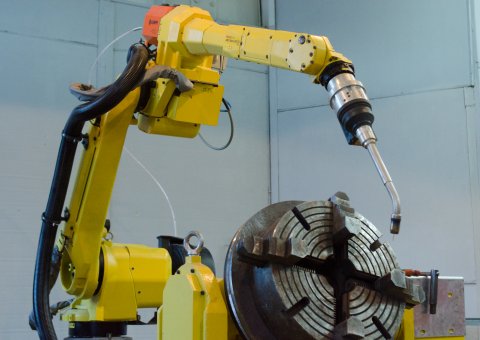Industrial production and welding is really important, since the level of technology in metallurgy, engineering and construction depends on the degree of its development. However, the rapid development of technology requires improving the quality of welding, automating its processes and creating new materials. Therefore, the Department of Equipment and Technology for Welding of South Ural State University finds new areas of research. A scientist from China is studying the use of digital technology to predict the quality of welding.
An article on the performances of regression model and artificial neural network in monitoring welding quality based on power signal was published in «Journal of Materials Research and Technology» indexed in Scopus Q1.
The study was conducted by a senior research fellow at the Department of Equipment and Technology of Welding of the Polytechnic Institute of SUSU, PhD Dawai Zhao. He found out that the quality of the joints made by resistance spot welding can be predicted, and the artificial neural network copes best with this task. Previously, the quality of the seams was checked after work, using various control methods.
To predict the quality of welded joints, the researcher made five seams. Dawai Zhao noted that a power signal correlates with the quality of welding. It contains information on dynamic resistance and this property indicates the condition of the welds during the welding process. The variations in the welding power signal in the welding process were investigated, and the characteristics of the power signals for different welding currents and electrode forces were analyzed. The power signals of different types of welding joints varied significantly. The power signal not only exhibits a similar change trend to that of the dynamic resistance but also corresponds to all the physical phenomena in the welding process. In addition, compared with the dynamic resistance, the power has a greater effect on the welding heat supplied to the welding zone, which is the essential factor determining the formation and growth of the nugget. These two properties determine the quality of welding joints.

PhD Dawai Zhao, a senior research fellow at the Department of Equipment and Technology for Welding
“It can be concluded that owing to the lower mean value and standard deviation of the absolute error of the BP neural network, it performs much better than the second-order regression model. One of the principal reasons for the superior performance of the BP neural network model is that it displays a better predictive capability than the regression model in actual application, owing to its random non-linear mapping ability. Therefore, the BP neural network can approximate nonlinear functions with arbitrary accuracy by regulating the variable weight connection”, said Dawai Zhao.
The main part of the study was held at Huazhong University of Science and Technology. The work was carried out on high-strength materials. This kind of research is a strategic direction for the development of the Department of Equipment and Technologies of Welding at SUSU. As the dean of the faculty “Materials Science and Metallurgical Technologies”, PhD and associate professor Mikhail Ivanov, noted that the invitation of Dawai Zhao improved the work of the department:
“Currently, welded joints are subject to mandatory final control after welding. It is believed in the industry that welding mode control is not enough to conclude that the weld is suitable due to the complex nature of the welding process. This research reveals that it is possible to predict the quality of the weld for a relatively simple method of contact spot welding by controlling its energy and power parameters. ”
.jpg)
Dawai Zhao believes that there are other reliable methods for controlling the quality of welding, in addition to the reverse distribution neural network. Therefore, the study will be continued, now in SUSU.
Research in the field of materials science is one of the three strategic areas for the development of scientific and educational activities of South Ural State University along with the digital industry and the environment.
SUSU is a participant in the 5-100 Project designed to increase the competitiveness of Russian universities among the world's leading research and educational centers.




